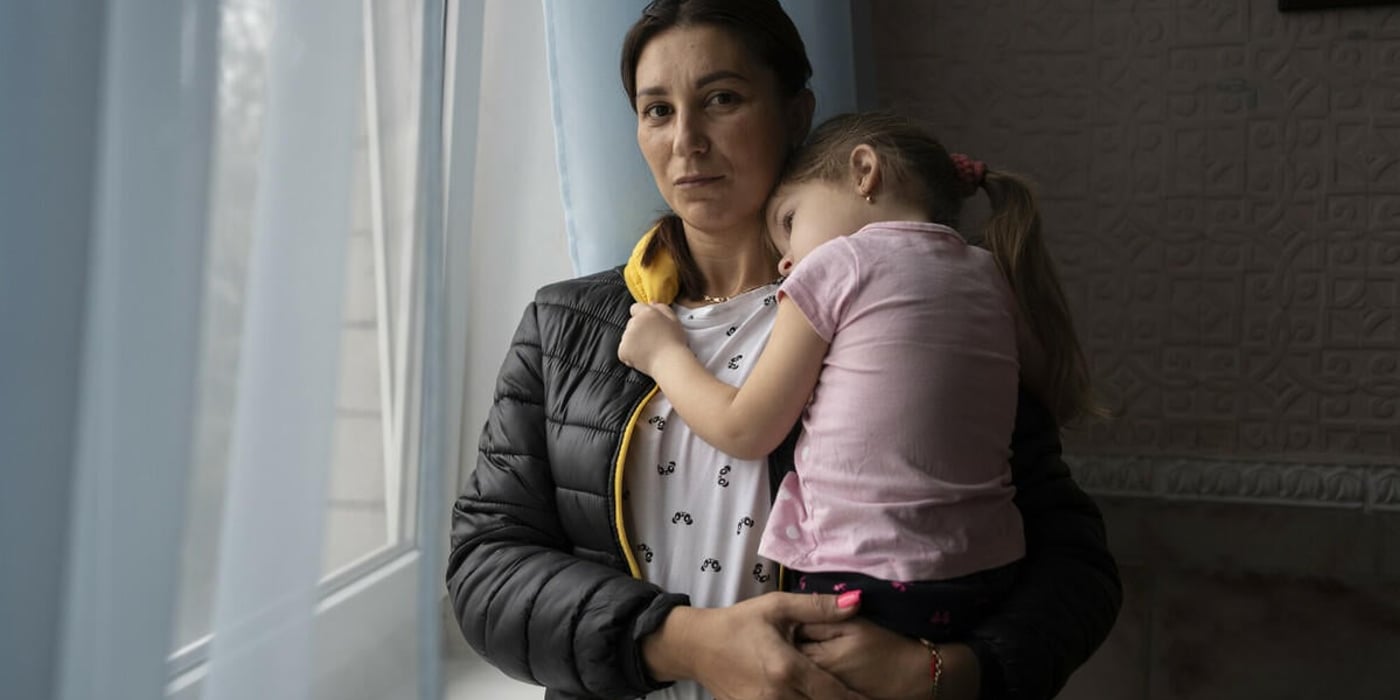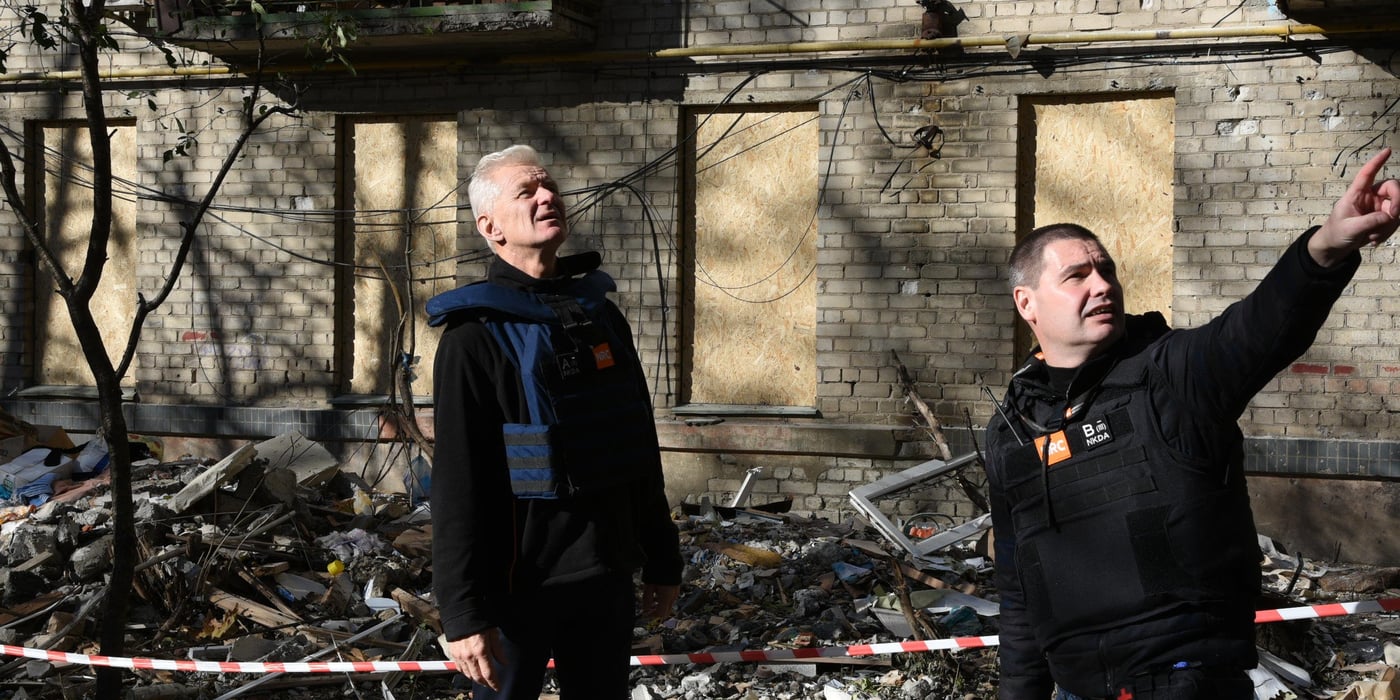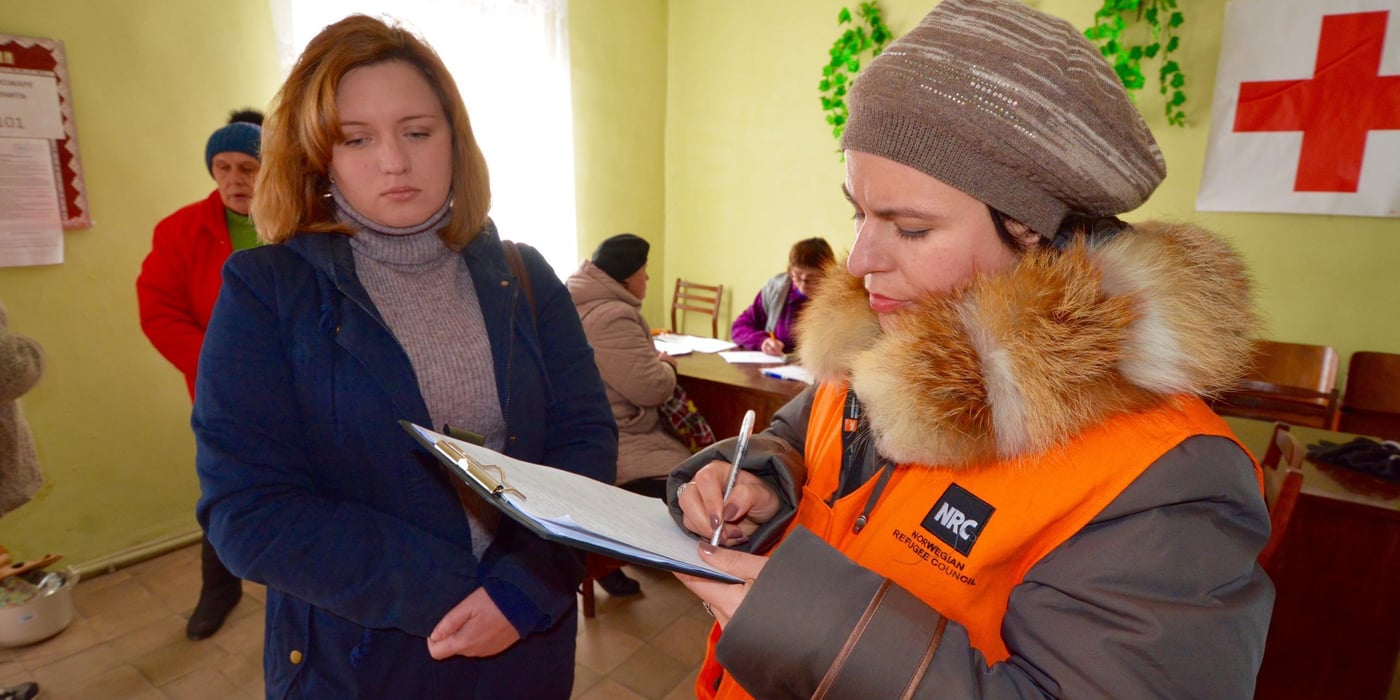
It is early morning in NRC's office in Severodonetsk in eastern Ukraine. Staff gather round the coffee machine to fill their cups before they rush to the daily security meeting. Some are going to deliver mattresses and cooking equipment to displaced and vulnerable people in distant locations along the frontline, and others are giving legal aid to people displaced due to the conflict, while some are working in HR, finance and administration at the office. What many here have in common is that they are themselves displaced because of the fighting that erupted in 2014.
"One of the real strengths of NRC staff in Ukraine is their genuine understanding of the people we are trying to help. Most national staff are themselves displaced. They intimately know what it means to take the decision to leave one's home, to cross a front-line and to start anew. This sense of "shared fate" means they relate to the experiences and challenges of NRC beneficiaries. Thanks to this, our teams are not only more effective, but more driven to reach out and assist those suffering from this conflict," says Christopher Mehley, NRC Country Director in Ukraine.

Homeless
Two of them are Tatiana Stepykina and her colleague Anastasiia Karpilianska, who work with communication and translation in NRC. "I was forced to leave my home where I had lived for 30 years and the place where I graduated from high school, where I married and I gave birth to my two children. I have lost my home and I had to seek for shelter," recalls Tatiana. Her hometown of Luhansk was taken over by separatist forces in 2014. She had a good job at the university when her brother called her one day and told her about the annexation of Crimea. "I would never ever have foreseen in my worst dream that we would be at war in our own country," Tatiana says.
War
She did not know her present colleague back then. Anastasiia was living in Donetsk and was home with her baby daughter when the war broke out. "When I saw the attack on the airport and the war planes in the sky, I realised this is war. I did not want to put my daughter at risk, so I went with the last night- train out of the city to stay for a while," says Anastasiia. She packed as if she was going out of town for a few weeks. It is now more than two years since that train ride. "I never thought that a country like Ukraine, in the middle of Europe, would get into such trouble," admits Anastasiia.
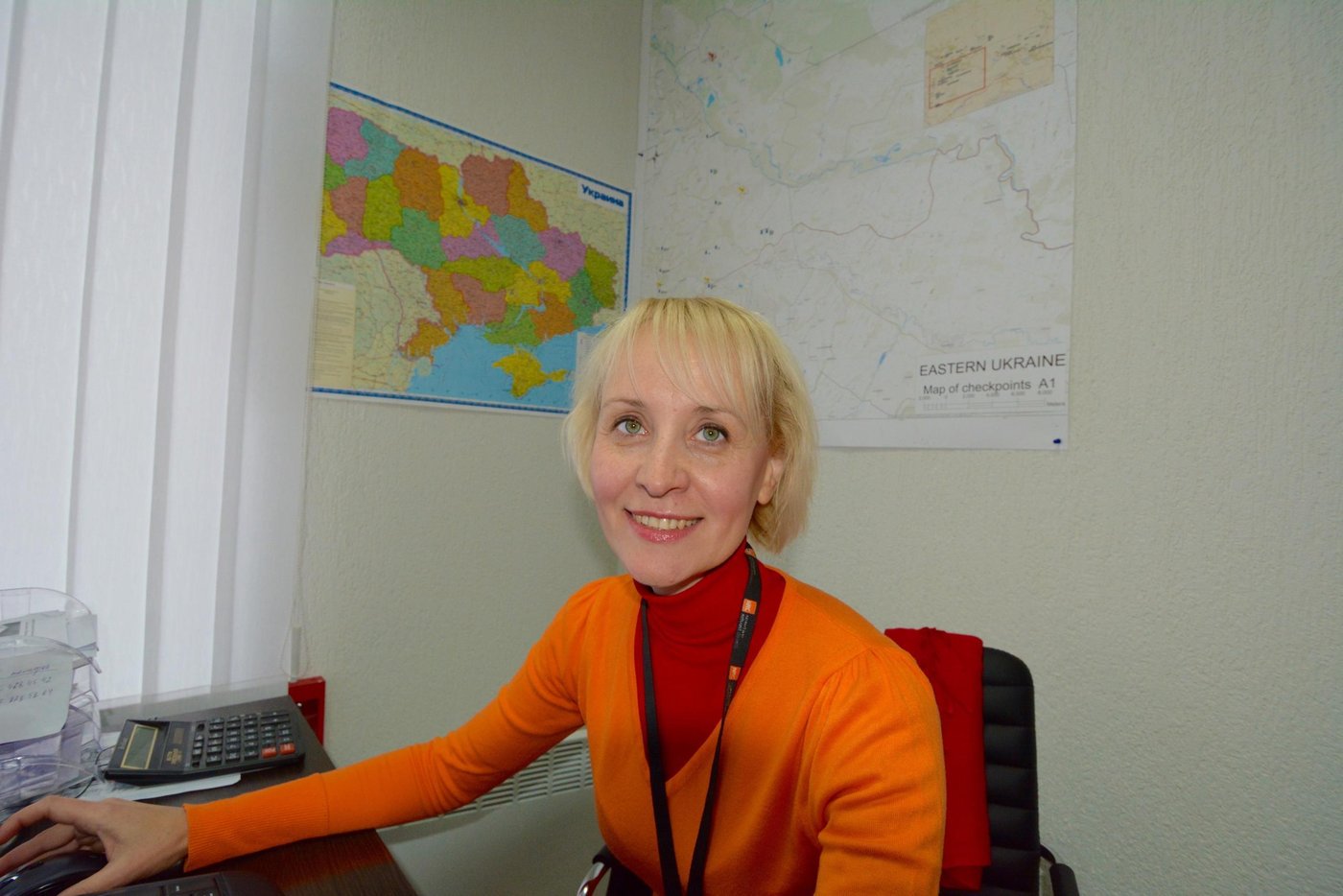
Shock
A couple of doors away from Anastasiia and Tatiana's office sit the logistics officers. One of them is Yelena Mokhunova, who echoes her colleagues when remembering the outbreak of the war. "This was a shock. I heard about war from my grandmother. Nobody expected this," Yelena says. The mother of three had to leave her hometown Donetsk when the war broke out. "It was a dangerous situation because there was shelling every night and I remember the floor shaking due to the heavy artillery. Unfortunately, I did not have money to leave at first," says Yelena.
Hunger
When she finally managed to flee, Yelena had no money to feed her family. "I didn't have any money for meals or housing, so we went hungry. Me, my son, my mother, my daughters and my dog, we all went without food. Then Red Cross helped us and I was registered as an internally displaced person (IDP) and then I could receive aid," recalls Yelena. Today more than 1 million Ukrainians have access to fewer than 1600 calories a day due to the conflict. This is the UN threshold for being food- insecure. About 950 000 people experience limited access to clean drinking water in eastern Ukraine
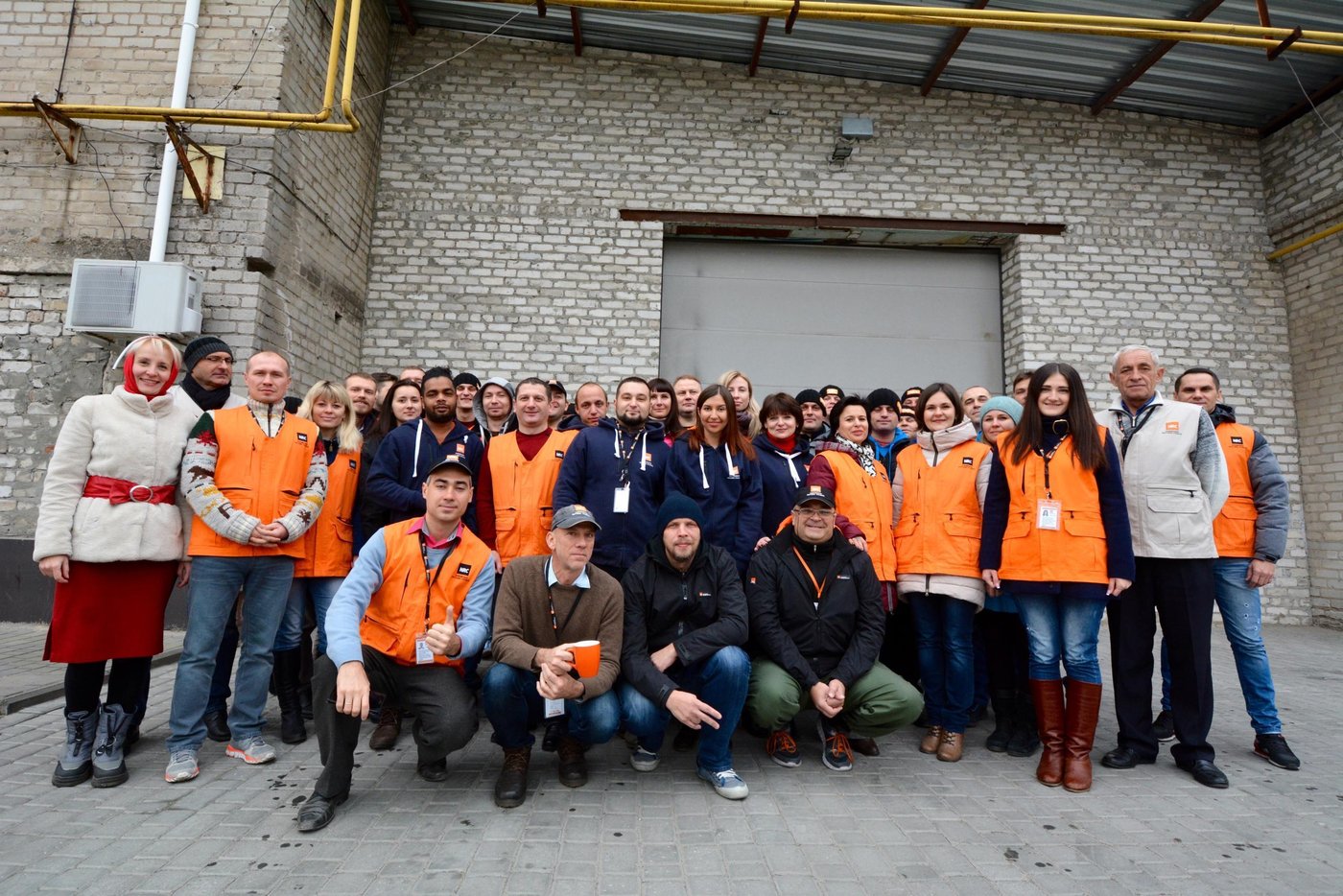
Refugee
The three colleagues in the NRC office in Severodonetsk are hopeful that the conflict will soon be over. Although they now have new jobs, they still feel as refugees in their own country. "It is stressful. I lived in a city that I loved, I had a good job, a lot of friends. I had hopes for a normal and stable life. Now I live in a city of strangers. Of course I have new friends, but still there is a feeling of not being in the right place. It is difficult to explain," says Anastasiia. "I am looking forward to not having soldiers and check points, not feeling limited within one country," she adds.
Humanitarian
Anastasiia and Tatiana are often out in the villages speaking with displaced people, gathering information that they share with the media. They believe their own background helps them understand better what people are going through. "I feel great empathy for them. I can easily put myself in their shoes. So I really think it helps in my humanitarian work," says Tatiana.
Her boss fully agrees: "NRC staff in Ukraine include those who are internally displaced, as well as those from other parts of Ukraine and international staff. This combination of experience is a real strength for our organisation. When you have staff who themselves have experienced displacement, they bring a first-hand understanding and feeling for the needs of people who have fled the fighting. This knowledge helps NRC to make better decisions when we design and implement protection and assistance activities," says Christopher Mehley.


